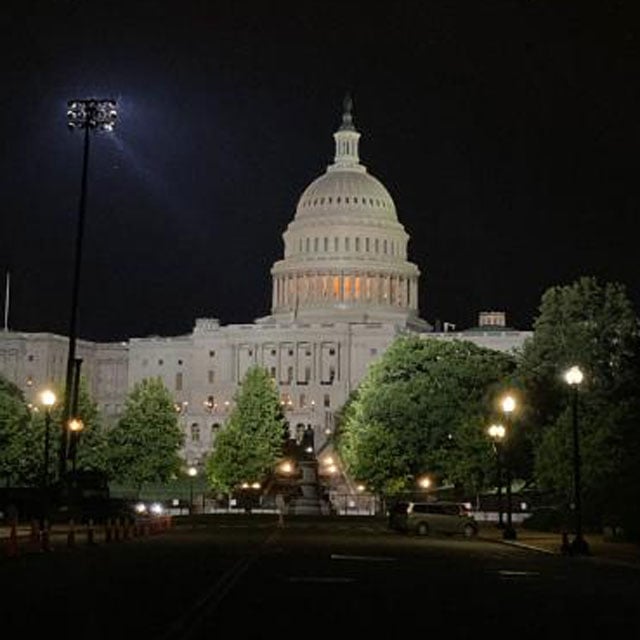 U.S. Capitol
U.S. Capitol
Tensions between lawmakers in Washington, D.C. are growing as budget negotiations are officially underway to pass a Republican-backed budget resolution for Fiscal Year (FY) 2025. According to the reconciliation instructions, the proposed budget includes $4.8 trillion in new spending and $1.5 trillion in savings.
The question remains: What will happen to the credit union tax-exempt status?
Recommended For You
As lawmakers on the House Budget Committee began debating the proposed budget on Thursday, credit union officials have been closely watching the hearing for any sign of eliminating the credit union tax-exempt status that has been in place for nearly 100 years.
House Committee members began their budget meeting at 10 a.m. EST and expected to meet well into the night. Throughout the day, Democrats issued a number of amendments to stop this version of the budget from going through. The Republican-controlled committee tabled the amendments.
Defense Credit Union Council (DCUC) Chief Advocacy Officer Jason Stverak was one of many credit union leaders closely watching Thursday’s hearing. Stverak sent this comment to CU Times stressing his thoughts on the tax-exempt status and just how important it is to preserve for the credit union system.
"Revoking or altering the tax status of credit unions will pry these institutions away from their people-first missions,” Stverak said. “We have to stress this will shift the scales from a near century -long balance supported and enacted by Congress within our Nation's financial sector. This will undoubtedly reduce Americans' right to financial choice and accessible financial services, and notably, contradict recent legislative efforts we've seen come out from both sides of the political aisle specifically aimed at expanding financial choice and inclusion ... This shift would also force America's smaller credit unions to divert valuable resources toward new tax burdens instead of reinvesting in lower loan rates, reduced fees and improved financial access for communities in need. We need to understand what this could mean for millions of Americans, who would face fewer options for daily, emergency and personalized financial services.”
DCUC also sent a letter to House Committee members ahead of the meeting.
In the letter, DCUC noted the advantages the tax-exempt status provides the economy.
- A 2023 study by CUNA found that credit unions delivered $15.5 billion in direct financial benefits to their members through better rates and lower fees compared to banks.
- NAFCU estimated that eliminating the tax exemption would cost credit union members $208 billion over 10 years due to increased fees and reduced rate advantages.
- Credit unions play a crucial role in funding small businesses, especially those owned by veterans and military spouses. Studies show credit unions are 10% more likely to approve small business loans compared to banks.
- Credit unions are instrumental in promoting homeownership, particularly for first-time buyers and service members utilizing VA home loans.
- Defense credit unions provide essential financial education, emergency assistance programs and low-interest payday alternative loans to protect military families from predatory lenders.
- Higher Costs for Families: The average credit union household would pay an additional $150-$200 annually in higher loan rates and fees.
- Reduced Credit Availability: A tax on credit unions could shrink small business lending by up to $5 billion annually.
- Wider Economic Disruptions: NAFCU estimates that taxing credit unions would slash $142 billion from the U.S. GDP over 10 years, leading to job losses and weaker economic growth.
© Touchpoint Markets, All Rights Reserved. Request academic re-use from www.copyright.com. All other uses, submit a request to [email protected]. For more inforrmation visit Asset & Logo Licensing.







